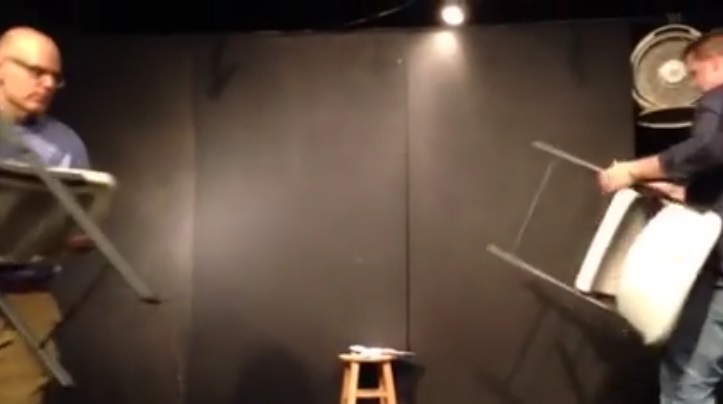How to use physicality to create a character on stage

Growing up, I always told myself that I was not very good at math. As an improviser, I told myself I was not good at characters. I thought characters had to have an accent or a funny voice, and I knew people who were brilliant at them: Joe Liss, Pete Gardner and Dave Koechner, to name a few. I was convinced I could never do what they did, so for years I resisted doing characters at all.
But then I stumbled on how a physicality can lead to a character, and everything changed. I remember I was playing a doctor, and I washing my hands at the top of the scene and was being very slow and particular about how I was doing it, which led me to realize that this guy was a bit of germophobe, probably a bit of a shy nerd and unsure of himself. It was still me, but the physicality had given me a character and freedom. I loved it. It was working.
Of course if something is working in my life, I stop doing it. (See: yoga, walking, drinking water). And for years, I have done a lot of scenes where I just resort to playing myself and forget I have a body on stage.
But recently, I did a scene where I used a physicality to create a character and I remembered just how fun and easy it can be.
Earlier this month, I was at The Tampa Improv Festival and I performed a live episode of Improv Nerd with Mike Carr, Artistic Director of SAK Comedy Lab in Orlando. If you are not familiar with the podcast, I typically interview my guest and then we improvise together. Mike choose to do a short form game that I believe was called Chairs that I had never played before. The premise is simple: At the top of the scene, we both walk around on stage holding our chairs and then someone from the audience yells stop. When they do, we place the chairs down and then begin the scene.
Mike is an excellent improviser, and as soon as we put our chairs down, he established from the first line that we were in prison cell, but our relationship to each other was not clear yet. Were we two prisoners? Was one of us a prison guard? Was one of us a lawyer? Mike endowed my character with being nervous based on my body language. I was far away from him, my back was to the wall and I was gripping the chair. As an improviser, you could not ask for a better gift.
Suddenly, using physicality to create a character all came flooding back to me. All I had to do was heighten what was right in front of me. I started to physically embody the fear, bracing the wall in utter terror of Mike’s character, who was a murderer. I moved slightly away from him because I did not want to be killed. This led to our relationship: I was his lawyer, probably a guy who not had many of these murder cases before.
This is when improv is the most enjoyable for me -- when I have a strong emotional connection with the other player on stage, and now it’s just a matter of listening and reacting honestly from your character’s point of view and adding specifics. That is what we did. The status shifted, we found several games in the scenes, and the audience loved it. And best of all, it was easy. I wish all improv was that easy.
So next time you think you don’t know how to “do” characters, remember that your body can give you a lot of clues about who you are. By simply observing how we’re feeling and behaving, we can tap into comedic gold.


"This is when improv is the most enjoyable for me — when I have a strong emotional connection with the other player on stage, and now it’s just a matter of listening and reacting honestly from your character’s point of view and adding specifics." Beautiful, Jimmy. Just beautiful.